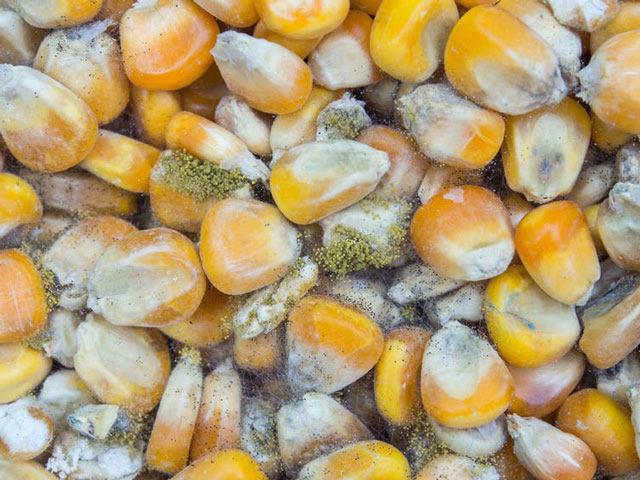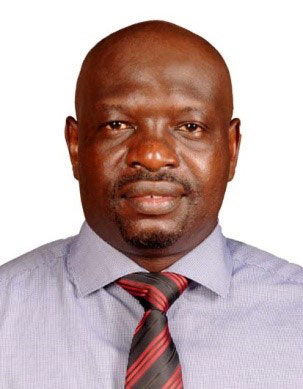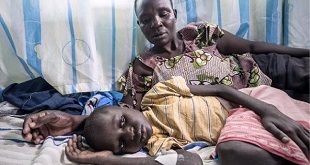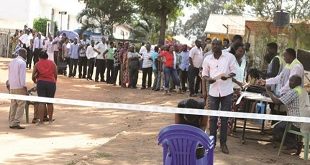
COMMENT | OSCORD MARK OTILE | According to Uganda’s grain trade policy, most Ugandans, especially in local governments (68%), depend on agriculture for both livelihood and income generation.
The country’s major agricultural commodities include coffee, tea, cassava, maize, beans, groundnuts, rice, and bananas. Coffee and tea are traditional cash crops grown mainly for export, while maize, beans, groundnuts, and rice are the primary agricultural commodities traded locally and within the EAC and COMESA region.
Recently, our parliamentarians went up in arms about the news that the government of Kenya had banned maize from Uganda because of high levels of mycotoxins that they said were consistently beyond safety limits.
Politically, the decision by Kenya may be seen as a move that contravenes the spirit of East African Integration and a common market. However, looking at it from a sober point of view, Kenya may have been driven by legitimate safety concerns for its citizens like any other nation would have done.
While this ban is likely to hit hard on Ugandan traders and farmers, this decision may in the long run, be a wakeup call to our farmers and traders to improve on the quality of their produce and attract better prices. I always like to pick the positives from every negative situation, and perhaps I think the ban is a blessing in disguise.
Eye opener
It would be hiding our heads in the sand to get on the defensive instead of addressing some of the known challenges regarding the quality of our grains. In fact this should instead be an eye-opener and provoke us as a country to rethink our grain export policy and agricultural export as a whole.
Those who have been around for some time in this country will know that the talk of aflatoxins in our grains is not a new thing. For example, during the lockdown due to COVID-19, efforts by the Ugandan government to distribute relief food to the urban poor of Kampala and Wakiso were frustrated and delayed because of the poor standards of beans and maize flour that were supplied by local suppliers.
According to Daily Monitor News Paper of April 16, 2020, the Minister of State for ICT and national guidance who was the head of the food distribution team at the time indeed admitted that there were such concerns and that the government had rejected food from various companies because they did not meet the standards.
The truth of the matter is that we have serious challenges especially regarding post-harvest handling and I think that we should instead be trying to find solutions to help our farmers to be better rather than protest Kenya’s decision.
For starters, I think that our farmers and traders dealing in grain would be earning more money if they were trading in products that would have gone through value addition.
President Yoweri Museveni has consistently been advising Ugandans on value addition. Uganda’s grain trade policy indicates that the installed capacity for drying, cleaning, grading, and agro-processing stands at 12% and that 88% of grain is transacted as raw grain.
An agricultural bank should be established in this country to provide farmers and traders dealing in grain and other agricultural produce with access to financial credit to engage in value addition.
For the industrialization of agriculture to be successful, the government of Uganda needs to address the challenge of high electricity tariffs – many small-scale processing industries have closed because of the same.
The central government should make more budget allocations in the agriculture sector and use existing local government structures to support training in post-harvest management and provide market assistance in support of small-holder farmer groups and medium-scale traders.
This is in addition to the establishment and renovation of warehouses, leasing out warehouse equipment to the private sector, and its support to the warehouse receipts system.
The government should enhance and facilitate collaboration with all the actors from the farm to the last consumer to develop the maize value chain further. There is also a need to identify and remove all bottlenecks to achieving competitiveness, and to ensure equitable returns for producers and those who operate within the local and export food distribution systems.
*****
 Oscord Mark Otile is a Research Officer with the Advocates Coalition for Development and Environment (ACODE).
Oscord Mark Otile is a Research Officer with the Advocates Coalition for Development and Environment (ACODE).
oscord.otile@acode-u.org; oscord.otile@gmail.com
 The Independent Uganda: You get the Truth we Pay the Price
The Independent Uganda: You get the Truth we Pay the Price



A very sad day for Uganda. Our parliament has turned into a mob, characteristically acting without logic. Even though the maize imports ban is hurting the economy, what about the issue of aflatoxin in our maize that Kenya is raising?? Should Kenyans continue eating maize containing poison just bcz of EAC? And how about the locals in Uganda who are eating this maize and its products? Are they of no concern to our mob MPs? Surprisingly, I am yet to hear of this ‘patriotism’, ‘nationalism’, by our MPs against the EU, USA, due to recent threatened sanctions against Uganda like what happened in Rwanda? Luckily, Uganda has a very sober President who acts only rationally and basing on facts and actionable intelligence.
Every dark cloud has a silver lining. This ban should be an opportunity for us as Uganda to clean our house. Our own people also need to feed on safe food let it be maize or anything else. It doesn’t need Kenya to tell us. When our local products become safe and of better quality, so do our exports. I appeal to the Uganda parliament leadership to provide logical leadership to the debates on the floor of the House. Mob justice should not overtake logical debates.
I couldn’t agree more. Well said.
Ah, with due respect
this complacence cannot be swept under the carpet, the entire leadership owes the nation an explanation
what about the chemical that dries maize very fast?
The extension worker and community development officer interacted with the community, conveying a
uniform message from the center and guiding the production of quality products and general well being
Now the population in the region is being loaded with mycotoxins and chemical residues
To day on television some ones maize was rejected then he said i will either take it for poultry or piggery
[even this is wrong]
This place no longer feels like home
I agree with you!